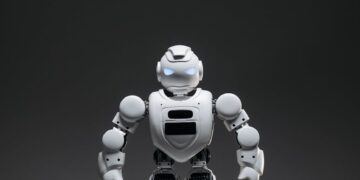The technological landscape is in constant flux, and while the term “AI” often conjures images of helpful but somewhat static chatbots, the real revolution is quietly unfolding. We’re on the cusp of an era where artificial intelligence transcends simple conversational interfaces, evolving into something far more dynamic and integrated into our daily existence: proactive personal agents. These aren’t just tools that respond to our commands; they are intelligent companions designed to anticipate our needs, manage complex tasks autonomously, and optimize our lives and work environments before we even ask. This article will explore how these next-generation AI agents are set to fundamentally redefine convenience, productivity, and our interaction with the digital world, moving beyond the reactive and into a realm of genuine foresight and action.
Beyond the chatbot: understanding the shift to proactive AI
For years, our primary interaction with artificial intelligence has been through chatbots and virtual assistants. These tools, while useful, operate largely on a reactive model: we ask a question, they provide an answer; we give a command, they execute it. They are excellent at transactional tasks like looking up information, setting a timer, or even helping with customer service queries. However, this model represents just the tip of the AI iceberg.
The exciting shift now occurring is towards proactive personal agents. Imagine an AI that doesn’t wait for you to specify a need but rather anticipates it, drawing on a deep understanding of your preferences, habits, and contextual data. These agents are designed to act autonomously, often orchestrating multiple tasks across various platforms to achieve a broader goal. They move from simply answering “What time is my flight?” to proactively booking your airport transfer, checking you in, and alerting you to gate changes, all without explicit instruction. Their intelligence isn’t just about processing information; it’s about interpreting intent, predicting future states, and initiating actions to align with your objectives, making them true partners rather than mere tools.
The core capabilities of proactive personal agents
The power of proactive AI agents lies in a sophisticated blend of capabilities that allows them to operate with a degree of autonomy and foresight previously unseen. Understanding these core functions is key to grasping their transformative potential:
- Contextual awareness: Unlike simple programs, these agents can understand the broader context of your activities, location, time of day, and even your emotional state. They learn from your past behaviors and current environment to infer your needs. For instance, knowing you typically review sales reports on Monday mornings, an agent might pre-load the latest data before you even open your laptop.
- Predictive analysis: Leveraging vast amounts of data and advanced machine learning algorithms, proactive agents can forecast future needs and potential issues. This could range from predicting a traffic delay on your commute and suggesting an earlier departure, to identifying a potential stock-out for your business based on current sales trends.
- Autonomous decision-making: Within predefined parameters and learning from your historical preferences, these agents can make decisions and execute tasks independently. This means booking an optimal flight based on your budget and loyalty program, or adjusting your smart home’s climate control based on your schedule and weather forecasts, all without direct input.
- Seamless integration and orchestration: Proactive agents are designed to work across a multitude of applications, devices, and services. They can pull data from your calendar, email, smart home devices, health trackers, and work platforms, then orchestrate actions across them to achieve complex goals. This creates a truly unified and intelligent experience, where disparate technologies work together as a cohesive whole.
- Continuous learning and adaptation: These agents are not static; they constantly learn from your interactions, feedback, and changes in your environment. Their effectiveness improves over time as they refine their understanding of your preferences, priorities, and unique way of life. This adaptive quality ensures that their proactive assistance remains relevant and increasingly personalized.
Revolutionizing daily life and personal productivity
The impact of proactive personal agents on our daily lives promises to be profound, shifting the paradigm from managing our technology to having technology manage our lives more intelligently. Imagine a world where the mental load of mundane tasks is significantly reduced, freeing up cognitive space for creativity, deep work, and personal pursuits.
For personal productivity, these agents could become the ultimate executive assistant. They might:
- Optimize schedules: Automatically reschedule appointments to avoid conflicts, suggest ideal times for tasks based on your energy patterns, and factor in travel time for meetings.
- Streamline information management: Summarize lengthy emails or documents, flag critical updates, and curate personalized news feeds based on your professional and personal interests.
- Automate household management: Order groceries based on pantry inventory and meal plans, manage utility usage for efficiency, and even coordinate home maintenance services.
- Enhance personal well-being: Monitor health metrics, suggest exercise routines aligned with your goals, remind you to take medication, and even recommend stress-reduction techniques based on your activity levels and calendar.
- Facilitate learning and growth: Identify skill gaps relevant to your career path, recommend online courses or articles, and even create personalized learning schedules tailored to your availability.
The essence of this revolution is the ability of AI to move beyond being a mere “to-do” list processor to becoming an intelligent orchestrator of our goals, anticipating challenges, and proactively paving the way for a more efficient and fulfilling existence.
Redefining the future of work
While personal life stands to gain immensely, the workplace is where proactive personal agents will likely ignite the most significant transformation. They are poised to redefine roles, enhance strategic decision-making, and create unprecedented levels of operational efficiency.
Consider the potential in various professional scenarios:
- Administrative automation: Beyond simple scheduling, agents can manage complex project workflows, automate report generation, handle compliance checks, and even draft initial communications based on meeting notes or project updates.
- Strategic insights and decision support: For leaders and analysts, these agents can process vast datasets, identify market trends, forecast potential risks, and present actionable recommendations in real-time. This moves beyond dashboards to dynamic, anticipatory insights.
- Personalized employee development: HR and training departments can leverage agents to identify individual skill gaps across teams, recommend personalized learning paths, and even facilitate mentorship connections based on career aspirations and expertise.
- Enhanced collaboration: Agents can act as intelligent facilitators in team environments, summarizing meeting discussions, assigning action items, flagging potential roadblocks, and ensuring seamless communication across distributed teams.
The shift isn’t just about automating tasks; it’s about creating an environment where human ingenuity is amplified by an intelligent partner capable of managing complexity and foresight. The table below illustrates some key distinctions in how traditional AI tools and proactive agents approach common work tasks:
| Work Task | Current AI (e.g., Chatbot/Basic Assistant) | Proactive Personal Agent |
|---|---|---|
| Meeting scheduling | “Schedule a meeting for Friday at 2 PM.” (Reactive, needs direct input) | Identifies optimal time based on all attendees’ calendars, time zones, preferences; books room/virtual link; sends invites; proposes agenda based on project status. (Autonomous, context-aware) |
| Project management | Provides task lists or updates upon request. | Monitors project progress, identifies potential delays, suggests resource reallocation, flags overdue tasks to relevant team members, drafts progress reports. (Predictive, orchestrating) |
| Data analysis | Generates reports or answers specific data queries. | Continuously analyzes data streams, identifies emerging trends or anomalies, presents actionable insights with recommendations before a query is made. (Anticipatory, strategic) |
| Learning & development | Suggests courses based on a keyword search. | Assesses skill gaps based on job role and performance, curates personalized learning paths, schedules study time, and tracks progress towards career goals. (Personalized, adaptive) |
This evolution allows professionals to focus on higher-level strategic thinking, creativity, and human interaction, while the proactive agents handle the intricate web of operational detail, transforming the very nature of what work entails.
Conclusion
The journey of artificial intelligence from reactive chatbots to proactive personal agents marks a pivotal moment in technological advancement. We’ve moved beyond simple question-and-answer interactions to an era where AI can anticipate our needs, make intelligent decisions, and seamlessly orchestrate complex tasks across our digital and physical environments. This isn’t just an incremental upgrade; it’s a fundamental shift towards AI becoming an intuitive partner in both our personal and professional lives, significantly reducing cognitive load and amplifying human potential. By leveraging contextual awareness, predictive analytics, and autonomous decision-making, these agents are poised to revolutionize how we manage our time, optimize our productivity, and engage with the world around us. As this technology matures, its profound impact will redefine convenience, reshape workflows, and ultimately free us to focus on what truly matters, ushering in an exciting future where AI works not just for us, but with us, anticipating our next step.


















